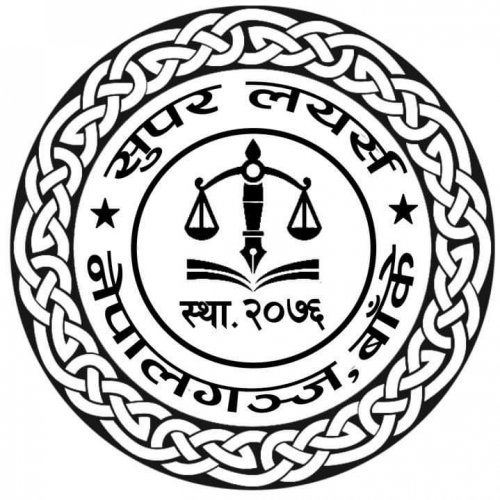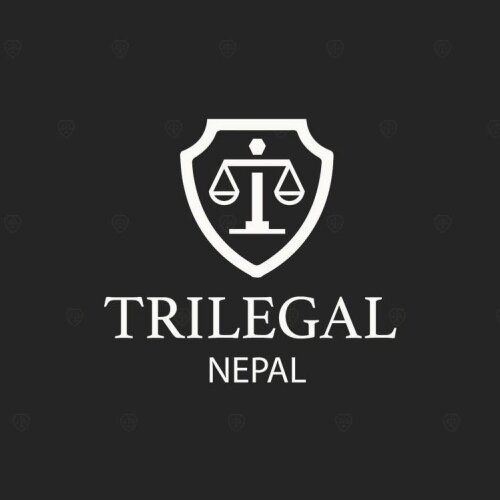Best Lawsuits & Disputes Lawyers in Nepal
Share your needs with us, get contacted by law firms.
Free. Takes 2 min.
Or refine your search by selecting a city:
List of the best lawyers in Nepal
About Lawsuits & Disputes Law in Nepal
Lawsuits and disputes in Nepal primarily fall under civil litigation, encompassing a wide range of areas such as family law disputes, property disputes, contract disputes, and tort claims. The legal system in Nepal is influenced by its dual heritage of ancient traditions and modern judicial practices. The judiciary ensures the enforcement of rights and obligations, providing a platform for individuals and entities to resolve their differences peacefully and lawfully. The legal proceedings are presided over by local district courts, appellate courts, and the Supreme Court, depending on the nature and extent of the dispute.
Why You May Need a Lawyer
There are various situations where you might require the expertise of a lawyer when dealing with lawsuits and disputes in Nepal:
- Complexity of Law: The intricate nature of legal statutes and procedural requirements often necessitates professional guidance.
- Property Disputes: Disagreements over real estate, inheritance, or land boundaries commonly require legal intervention to reach a solution.
- Contractual Issues: Breaches of contract or disagreements over terms may arise, needing detailed legal scrutiny and resolution.
- Family Matters: Divorce, custody battles, and spousal support disputes often require sensitive handling through legal channels.
- Debt Recovery: Difficulties in recovering borrowed money can lead to litigation, necessitating a lawyer to navigate the legal process adequately.
- Personal Injury: In cases of harm or injury caused by another party, legal advice is essential to pursue compensation claims.
Local Laws Overview
Nepal’s legal system is structured under the Constitution of Nepal, which provides the framework for all laws, including those concerning lawsuits and disputes. Some key aspects include:
- Civil Code and Procedural Rules: The promulgation of the Civil Code in 2017 along with specific procedural rules guides the governance of civil lawsuits.
- Dispute Resolution Mechanisms: Alternative Dispute Resolution (ADR) methods, including mediation and arbitration, are encouraged to settle disputes expediently.
- Local Jurisdiction: District courts primarily handle civil cases, with the appellate courts serving as a reconsideration forum. The Supreme Court stands as the ultimate judicial authority.
- Applicable Timelines: Statutory limitations dictate the time within which claims must be filed, varying depending on the type of dispute.
Frequently Asked Questions
What types of cases can be filed under civil litigation in Nepal?
Civil litigation can involve property disputes, family law cases, contracts, tort claims, and other personal or commercial legal disputes.
How long does a typical civil lawsuit take in Nepal?
The duration varies depending on the case complexity and the court's schedule, ranging from several months to a few years.
Can disputes be settled out of court?
Yes, disputes can often be resolved through alternative dispute resolution methods, such as mediation or arbitration, even after legal proceedings have begun.
Do I need to appear in court if I hire a lawyer?
Your lawyer can represent you, but you may need to attend during crucial phases such as witness testimony or final judgment.
What is the cost of hiring a lawyer for a lawsuit in Nepal?
Costs vary based on lawyer experience, case complexity, and geographical location. It's advisable to discuss fees upfront with your lawyer.
Are there any legal aid services available in Nepal?
Yes, several governmental and non-governmental organizations provide legal aid to those unable to afford a lawyer, particularly in civil cases.
Can foreign nationals file lawsuits in Nepal?
Foreign nationals can file lawsuits in Nepal if the dispute falls within the jurisdiction of Nepali courts.
Is there any penalty for filing a frivolous lawsuit?
Yes, filing frivolous or malicious lawsuits can result in penalties, including fines and compensation for the defendant's legal costs.
What evidence is required to support my case?
Evidence may include contracts, written agreements, witness testimonies, photographs, or any documentation relevant to the dispute.
Can court decisions be appealed?
Yes, decisions of district courts can be appealed to appellate courts and ultimately to the Supreme Court if further reconsideration is required.
Additional Resources
For those seeking legal advice or assistance in Nepal, the following resources may be of help:
- Nepal Bar Association: Provides a directory of licensed lawyers across various fields.
- Supreme Court of Nepal website: Offers information on court procedures and recent judgments.
- Office of the Attorney General: Offers legal representation and advisory services to the government and the public on some occasions.
- Legal Aid and Consultancy Centre (LACC): Provides legal aid services to marginalized groups and individuals.
Next Steps
If you need legal assistance for a lawsuit or dispute in Nepal, consider taking the following steps:
- Identify Your Issue: Clearly outline the nature of your legal problem to determine whether it's a dispute suitable for legal action.
- Consult a Lawyer: Seek consultation with a qualified lawyer experienced in the relevant legal field. Prepare to discuss the specifics and provide necessary documentation.
- Explore Resolution Options: Examine the possibility of settling the dispute through ADR methods before proceeding with formal litigation.
- Evaluate Legal Aid Facilities: If cost is a concern, research available legal aid services that might offer free or reduced-fee assistance.
- File Your Case: If proceeding with a lawsuit, ensure all legal documents are prepared correctly and submitted to the appropriate court within stipulated deadlines.
Lawzana helps you find the best lawyers and law firms in Nepal through a curated and pre-screened list of qualified legal professionals. Our platform offers rankings and detailed profiles of attorneys and law firms, allowing you to compare based on practice areas, including Lawsuits & Disputes, experience, and client feedback.
Each profile includes a description of the firm's areas of practice, client reviews, team members and partners, year of establishment, spoken languages, office locations, contact information, social media presence, and any published articles or resources. Most firms on our platform speak English and are experienced in both local and international legal matters.
Get a quote from top-rated law firms in Nepal — quickly, securely, and without unnecessary hassle.
Disclaimer:
The information provided on this page is for general informational purposes only and does not constitute legal advice. While we strive to ensure the accuracy and relevance of the content, legal information may change over time, and interpretations of the law can vary. You should always consult with a qualified legal professional for advice specific to your situation.
We disclaim all liability for actions taken or not taken based on the content of this page. If you believe any information is incorrect or outdated, please contact us, and we will review and update it where appropriate.
Browse lawsuits & disputes law firms by service in Nepal
Nepal Attorneys in related practice areas.
Browse lawsuits & disputes law firms by city in Nepal
Refine your search by selecting a city.

















